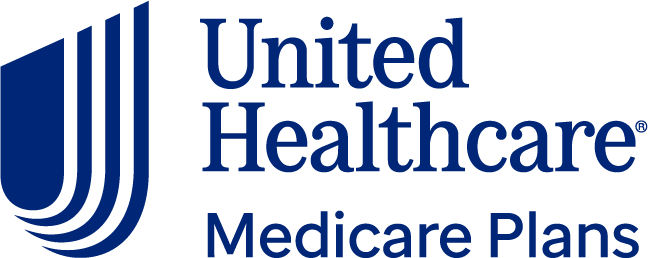What Is Medicare Part A? Coverage, Costs, FAQs
Medicare Part A is the hospital insurance portion of Medicare. For most people, it’s premium-free.

Many, or all, of the products featured on this page are from our advertising partners who compensate us when you take certain actions on our website or click to take an action on their website. However, this does not influence our evaluations. Our opinions are our own. Here is a list of our partners and here's how we make money.
Original Medicare includes Medicare Part A and Medicare Part B. Medicare Part A is your hospital insurance, covering things like an inpatient hospital stay, and Medicare Part B is your medical insurance, covering things like doctor visits. The monthly premium for Part A is $0 for most people, but it does come with out-of-pocket costs like deductibles and coinsurances.
Here’s what to know about Part A coverage and costs.
What does Medicare Part A cover?
Medicare Part A typically covers costs related to four inpatient services: inpatient hospital care, skilled nursing facility care, hospice care and home health services.
Inpatient hospital care
Inpatient hospital care includes hospital services you get when you’re admitted to an inpatient facility on doctor’s orders. Most hospitals accept Medicare, a criteria for using Part A. Note, however, that Veterans Affairs hospitals and other military hospitals usually take VA and military insurances, not Medicare.
Skilled nursing facility care
Skilled nursing facility care is short-term care at a Medicare-certified skilled nursing facility following a qualifying inpatient hospital stay of at least three days.
Hospice care
Hospice care is end-of-life care you receive if you're terminally ill and accept comfort care. Any care you get must be set up by your chosen Medicare-approved hospice provider to be fully covered.
Home health services
Home health services include medically necessary in-home care provided to people who are homebound. You must get care from a Medicare-certified agency to be covered by Part A. Your provider can help you find certified agencies in your area.
Shopping for Medicare plans? We have you covered.

4.1
CMS Star Rating
from UnitedHealthcare

3.61
CMS Star Rating
How much does Medicare Part A cost?
You qualify for premium-free Medicare Part A if you or your spouse has worked and paid Medicare taxes for at least 10 years, or 40 quarters. To determine your eligibility, use Medicare's eligibility calculator.
If you don't qualify for premium-free coverage, you may be eligible to buy Part A coverage. If you must pay for Part A, the premium is as much as $565 per month in 2026, depending on you and your spouse's work and Medicare tax history.
Aside from Part A premiums, there are other costs based on your health care use. If you have a Medigap plan, these costs may be covered by that insurance. If you have a Medicare Advantage policy, it has to cover the same services but may come with different copays, coinsurance and deductibles.
The table below summarizes your share of Part A costs when using Original Medicare.
Medicare Part A costs
Services | Costs* |
|---|---|
Inpatient hospital care |
|
Skilled nursing facility care |
|
Hospice |
|
Home health services |
|
*Your share of Part A costs if you don't have supplemental insurance that covers these deductibles and coinsurance charges.
Other parts of Medicare — including Part C (Medicare Advantage plans), Part D (prescription drug coverage) and Medigap plans — are available through private health insurers approved by Medicare. If you sign up for a Medicare Advantage plan, an alternative to Original Medicare, it will include at least the same coverage provided in Original Medicare. However, you may be limited to a certain network and different costs and rules may apply.
Who is eligible for Medicare Part A?
Generally, you're eligible for Medicare Part A if you meet one of the following requirements, according to Medicare:
You're age 65 or older.
You've received disability benefits from Social Security or the Railroad Retirement Board for 24 months.
You receive disability benefits because you have Amyotrophic Lateral Sclerosis, also called ALS or Lou Gehrig’s disease.
You have end-stage renal disease (ESRD) and meet certain requirements.
» MORE: How do I sign up for Medicare?

Does it make sense to enroll in Medicare Part A and postpone the rest?
For those getting health care from a large employer, enrolling in Part A if you qualify for premium-free Part A and delaying the rest until retirement might seem like a smart idea — but there are caveats.
If you’re contributing to a health savings account and want to keep doing that, keep in mind that you can’t save money to an HSA once you’ve signed up for Medicare. If you start Part A at 65, you should stop HSA contributions before your 65th birthday month. If you sign up after 65, stop six months before you plan to enroll in Part A, because Part A coverage gets back-dated six months or to your 65th birthday month, whichever is closest.
Does Medicare pay 100% of your hospital stay?
No. Although Medicare Part A covers a share of your eligible medical costs, you’re still responsible for some out-of-pocket costs unless you have a supplemental plan (Medigap) that covers them.
You’ll have to cover deductibles, and potentially coinsurance, if you’re hospitalized or in approved skilled nursing care. That deductible for hospital care is $1,736 in 2026 per benefit period, which starts on the day you’re admitted and ends when you haven’t received inpatient hospital care or care in a skilled nursing facility for 60 days.
If your hospital stay exceeds 60 days or your skilled nursing facility stay exceeds 20 days, you'll have to start paying coinsurance. If you enter a new benefit period after the previous one ended, you will pay the deductible again.
When should I enroll in Medicare Part A?
If you’re already receiving Social Security or Railroad Retirement Board benefits before age 65, you’ll automatically be enrolled in Original Medicare — including both Medicare Part A and Part B coverage — the month you turn 65.
If you are waiting to start Social Security benefits, you can separately enroll in Part A, Part B or both. Regardless of your choice, you must apply for coverage on SSA.gov.
Here's when you can enroll:
Initial enrollment period (IEP): This is the seven-month period starting three months before the month you turn 65, including your birthday month and ending three months after your birthday month. If your birthday is on the first of a month, your IEP begins four months before your birthday month and ends two months after.
Special enrollment period (if you qualify): Certain situations or life events will allow you to sign up for Part B and Premium-Part A outside of normal enrollment periods. These events include things like ending health coverage from an employer or missing sign-up due to a natural disaster.
General enrollment period: This runs from Jan. 1 through March 31 every year. If you didn’t sign up when you were first eligible and weren’t eligible for a special enrollment period, you’ll have to wait for the general enrollment period to sign up. Coverage starts the month after you sign up, and you may pay penalties for late enrollment. If you were to realize on April 1 that you needed to sign up for Medicare during the general enrollment period, you'd have to wait until January to sign up, and coverage would start in February.
» MORE: When does Medicare start?
Those who aren’t eligible for a special enrollment period and miss the initial enrollment period could face trouble. They may have to pay permanent penalties for the delay in coverage, and they’ll have to cover their medical costs out-of-pocket while they wait for the next sign-up period.
While there aren’t penalties for Part A if you’re getting it premium-free, there are penalties for enrolling late in Parts B and D, which grow larger the longer you postpone your enrollment. Before turning 65, make sure you understand the type of coverage you'll have available the month you turn 65 and whether you’ll be eligible for a special enrollment period.
The parts of Medicare
Read more about the different parts of Medicare and what they cover.
ON THIS PAGE
Compare Medigap plans
ON THIS PAGE










